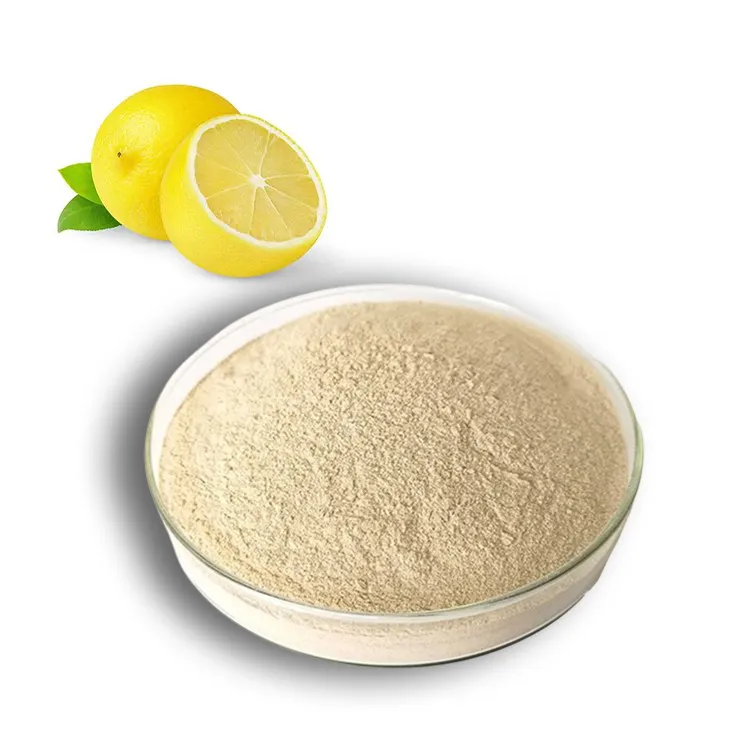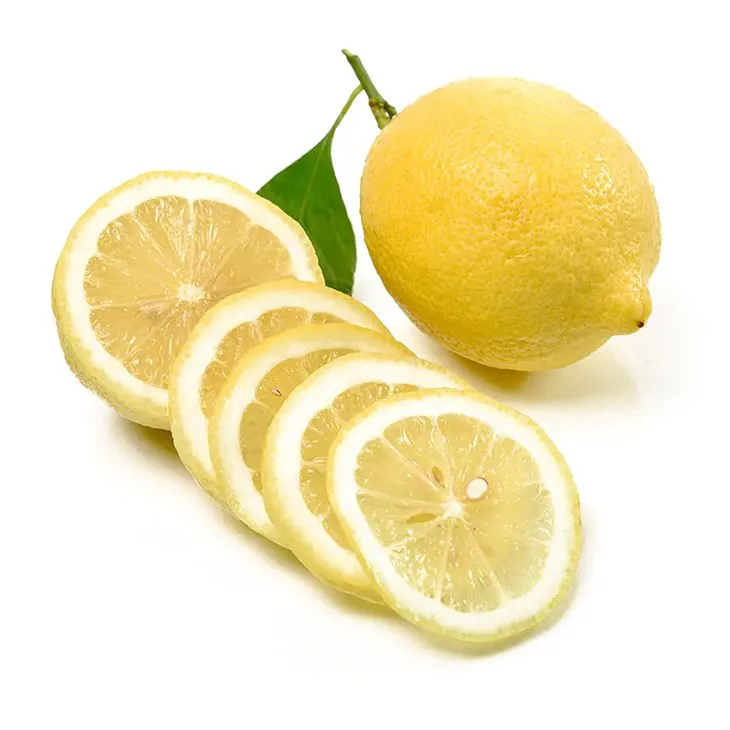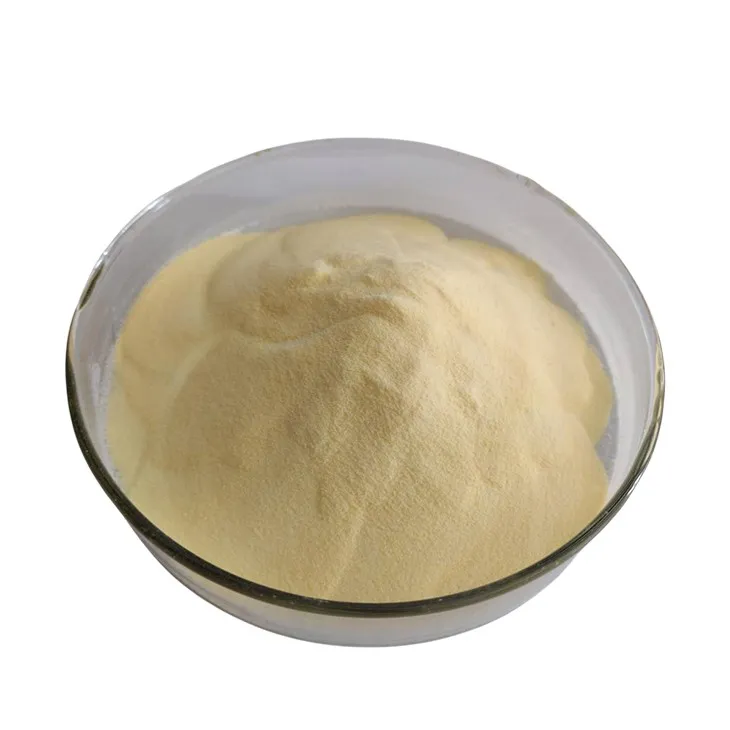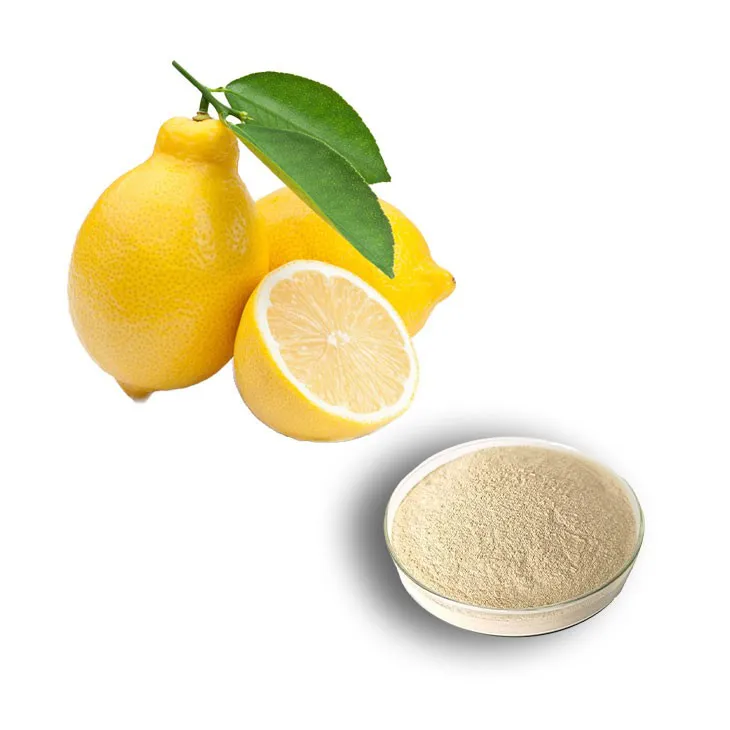- 0086-571-85302990
- sales@greenskybio.com
Lemon extracts: Their production methods and the reasons for their popularity.
2024-12-16

1. Introduction
Lemon Extracts have become an increasingly popular ingredient in various industries, from food and beverage to cosmetics and pharmaceuticals. Their unique flavor and numerous health benefits have made them a sought - after component in many products. This article will explore the production methods of Lemon Extracts and the reasons behind their widespread popularity.

2. Production Methods of Lemon Extracts
2.1 Selection of Lemons
The first step in the production of lemon extracts is the careful selection of lemons. Only high - quality lemons are chosen for extraction. These lemons should be ripe, free from blemishes, and have a strong lemon aroma. The origin of the lemons also plays a role, as lemons from certain regions may have a more desirable flavor profile.
2.2 Extraction Procedures
There are several methods for extracting lemon essence from the selected lemons:
-
Steam Distillation: In this method, steam is passed through the lemon peels or the whole lemons. The heat causes the volatile compounds in the lemon to vaporize. These vapors are then condensed back into a liquid form, which contains the lemon extract. Steam distillation is a popular method as it is relatively gentle and can preserve the delicate flavor compounds of the lemon.
-
Solvent Extraction: Here, a solvent such as ethanol or hexane is used to dissolve the flavor - rich compounds in the lemon. The lemon material is soaked in the solvent, and after a period of time, the solvent with the dissolved compounds is separated from the solid residue. The solvent is then evaporated, leaving behind the lemon extract. However, this method requires careful removal of the solvent residues to ensure the safety of the final product.
-
Cold - Press Extraction: This method involves mechanically pressing the lemons to extract the juice. The juice contains a significant amount of the flavor - giving substances. The pressed juice can then be further processed, such as through filtration and concentration, to obtain a more concentrated lemon extract. Cold - press extraction is often favored for its ability to produce a more "natural" - tasting extract, as it does not involve high - temperature processes like steam distillation.

3. Reasons for the Popularity of Lemon Extracts
3.1 Pleasant Taste
Lemon extracts are known for their pleasant taste, which is both tangy and refreshing. This unique flavor profile makes them a versatile ingredient in the food and beverage industry. In baking, lemon extract can add a zesty flavor to cakes, cookies, and pastries. In beverages, it can enhance the taste of lemonades, teas, and cocktails. The refreshing taste of lemon also makes it a popular choice for products designed to provide a quick pick - me - up, such as energy drinks and flavored waters.
3.2 Antioxidant Properties
Lemons are rich in antioxidants, and lemon extracts retain these beneficial properties. Antioxidants play a crucial role in the body by neutralizing free radicals, which are unstable molecules that can cause damage to cells. By consuming products containing lemon extracts, consumers can potentially benefit from these antioxidant effects. In the cosmetics industry, the antioxidant properties of lemon extracts are also utilized. They can be added to skincare products to help protect the skin from environmental damage, such as UV radiation and pollution, and may also contribute to anti - aging effects.
3.3 Natural Alternative
In today's health - conscious society, consumers are increasingly seeking natural alternatives in the products they use. Lemon extracts fit this bill perfectly. As a natural ingredient, they are perceived as a healthier option compared to artificial flavorings and additives. In the food industry, the use of lemon extracts can help manufacturers meet the growing demand for clean - label products. In cosmetics, natural ingredients like lemon extracts are favored by consumers who are concerned about the potential side effects of synthetic chemicals on their skin.

4. Applications of Lemon Extracts
4.1 Food and Beverage Industry
Lemon extracts are widely used in the food and beverage industry. As mentioned earlier, they are used in baking to add flavor to a variety of baked goods. In the production of dairy products such as ice creams and yogurts, lemon extract can provide a refreshing and tangy taste. In the beverage sector, lemon - flavored drinks are extremely popular, and lemon extracts are used to create these flavors. Additionally, lemon extracts can be used in the production of sauces, dressings, and marinades to add a zesty kick.
4.2 Cosmetics Industry
In the cosmetics industry, lemon extracts are used in a variety of products. In skincare, they can be found in face washes, toners, and moisturizers. The antioxidant and antibacterial properties of lemon extracts can help cleanse the skin, reduce inflammation, and prevent acne. In haircare products, lemon extracts can be added to shampoos and conditioners to add shine to the hair and control dandruff. Lemon - scented perfumes and body sprays are also popular, and lemon extracts are used to create these pleasant fragrances.
4.3 Pharmaceuticals Industry
The pharmaceutical industry also makes use of lemon extracts. Their antibacterial and antioxidant properties can be beneficial in the development of oral health products such as mouthwashes and toothpastes. Lemon extracts may help fight against oral bacteria and freshen breath. Additionally, some studies suggest that certain compounds in lemon extracts may have potential medicinal properties, such as anti - inflammatory and anti - cancer effects, although more research is needed in these areas.

5. Conclusion
Lemon extracts are a valuable ingredient with a wide range of applications. Their production methods, which involve careful selection of lemons and various extraction procedures, ensure the quality and consistency of the final product. The reasons for their popularity, including their pleasant taste, antioxidant properties, and status as a natural alternative, have made them a staple in many industries. As consumer demand for natural and healthy products continues to grow, the importance of lemon extracts is likely to increase even further in the future.
FAQ:
1. How are lemons selected for lemon extract production?
For lemon extract production, lemons are typically selected based on their ripeness, quality, and lack of blemishes. Ripe lemons are chosen as they contain the optimal amount of flavor - related compounds. High - quality lemons ensure a pure and consistent extract. Lemons without blemishes are less likely to introduce unwanted substances or off - flavors during the extraction process.
2. What are the main extraction procedures for lemon extracts?
The main extraction procedures for lemon extracts often include methods such as cold - pressing or solvent extraction. Cold - pressing is a more natural method where the lemons are mechanically pressed to release their juices, which can then be further processed into an extract. Solvent extraction may involve using a food - grade solvent to draw out the desired components from the lemon peel or pulp, followed by the removal of the solvent to obtain a concentrated extract.
3. Why is the pleasant taste of lemon extracts important for their popularity?
The pleasant taste of lemon extracts is important for their popularity because it can enhance the flavor of a wide variety of products. In food and beverages, it adds a refreshing, citrusy note that can make products more appealing. In cosmetics and personal care products, the pleasant smell associated with the taste also gives a fresh and clean impression, making these products more desirable to consumers.
4. How do the antioxidant properties of lemon extracts contribute to their popularity?
The antioxidant properties of lemon extracts contribute to their popularity as consumers are increasingly aware of the health benefits of antioxidants. Antioxidants help to protect the body's cells from damage caused by free radicals. Products containing lemon extracts can thus be marketed as having potential health - promoting properties, which attracts health - conscious consumers who are looking for natural ways to maintain their well - being.
5. In what types of products are lemon extracts used as a natural alternative?
Lemon extracts are used as a natural alternative in many types of products. In the food industry, they can be used in place of artificial flavorings in products like baked goods, candies, and beverages. In the cosmetics and personal care industry, they are used instead of synthetic fragrances in items such as soaps, lotions, and perfumes. In cleaning products, they can serve as a natural alternative to harsh chemicals, providing a fresh scent and some antibacterial properties.
Related literature
- The Production and Applications of Lemon Extracts"
- "Lemon Extract: A Natural and Popular Ingredient in Various Industries"
- "Understanding the Appeal of Lemon Extracts: From Production to Consumption"
- ▶ Hesperidin
- ▶ citrus bioflavonoids
- ▶ plant extract
- ▶ lycopene
- ▶ Diosmin
- ▶ Grape seed extract
- ▶ Sea buckthorn Juice Powder
- ▶ Beetroot powder
- ▶ Hops Extract
- ▶ Artichoke Extract
- ▶ Reishi mushroom extract
- ▶ Astaxanthin
- ▶ Green Tea Extract
- ▶ Curcumin Extract
- ▶ Horse Chestnut Extract
- ▶ Other Problems
- ▶ Boswellia Serrata Extract
- ▶ Resveratrol Extract
- ▶ Marigold Extract
- ▶ Grape Leaf Extract
- ▶ blog3
- ▶ blog4
- ▶ blog5
-
Pure 85% Tomentil Extract.
2024-12-16
-
Cocoa Extract
2024-12-16
-
Yellow Pine Extract
2024-12-16
-
Avocado Extract Powder
2024-12-16
-
Shikonin
2024-12-16
-
Tormentil Extract
2024-12-16
-
Quercetin
2024-12-16
-
Peppermint Oil
2024-12-16
-
Tinospora cordifolia extract
2024-12-16
-
White mustard seed extract
2024-12-16
-
Elderberry Extract
2024-12-16





















